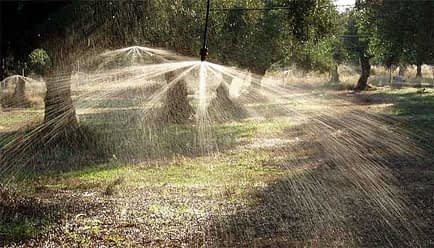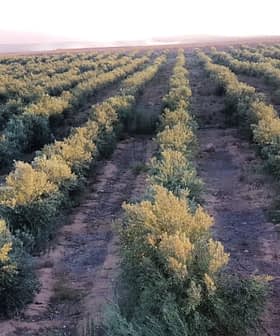A study developed by the ACEVIN Research Group at Spain’s Universidad de Extremadura (UEx), in conjunction with Finca La Orden, has observed a correlation between reduced irrigation and olive oil quality.
According to the study, reducing water for irrigation by 25 percent to 90 percent resulted in a loss of production (measured in total weight of harvested olives) of 36 percent to 50 percent respectively. However, higher quality oils were obtained from olives that received less water.
“Despite decreases in olive volume, the oil yield obtained was higher in deficit treatments, partially offsetting the loss of crops,” said UEx researcher Michael Concepcion.
The researchers found that oils obtained from olives that received less water had higher concentrations of phenolic compounds, which provide valuable health benefits. These olives had higher concentrations of certain color-intensifying pigments as well, a characteristic commonly associated with olive oil quality. The extra virgin oils obtained from these olives were more bitter, stable and color intensive than those that were more heavily irrigated, the study concluded.
“Restrictive irrigation treatments allowed for increases in the parameters that define oil quality, such that all samples taken attained a grade of extra virgin,” the UEx said.
Funded by the National Research Institute for Agriculture and Food Technology, the study was conducted in order to better understand the influence of irrigation water management on the composition and quality of olive oil.









